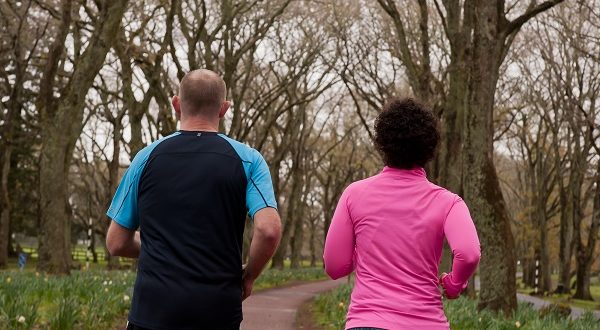 What are fitness trackers?
What are fitness trackers?
Fitness or activity trackers are devices usually worn around the wrist that are fitted with a sensor that enables movement to be monitored. Most of these trackers measure your daily activity by the number of steps you have taken. Some can also record the distance you have travelled and the intensity of your movement (i.e. whether you were walking, jogging or running at speed). Others can track your sleep quality and allow you to record the calories you have eaten.
The higher-end models also measure your heart rate, blood pressure and oxygen levels. Often you can link the tracker to your smartphone or computer which will allow you to store and analyse the information that it has recorded. When comparing fitness trackers to traditional pedometers (a step counting device worn on the waist band) feedback from a group of over 50’s was that the trackers were preferable as their step tracking was more reliable and allowed for a broader range of information to be measured to help track your activity and weight loss goals*. One of the primary reasons people purchase fitness trackers is to keep them on track with weight loss goals, but can they really help with this?
What the research says
With fitness trackers being relatively new to the market, there is not a huge amount of good quality research out there about whether they assist users to lose weight. What is evident is:
• Studies looking at the effect of allowing overweight adults to trial a fitness tracker for six weeks found that people who wore a tracker significantly increased the total minutes of exercise they completed per week compared to participants who didn’t wear a tracker**.
• A large study examining use of activity trackers over a two year period found that users who tracked their steps and calorie intake on a ‘moderately regular’ basis (i.e. weekly weight recording, daily food recording, and three times weekly exercise recording) lost significantly more weight than participants who tracked these measures less regularly***.
So in summary, the research suggests there is a motivational benefit in using fitness trackers to monitor activity levels and calorie intake which can encourage weight loss when they are used on a regular basis.
How can you best use a fitness tracker to help you to lose weight?
• For the first few days after purchase wear your fitness tracker simply to get an idea of how many steps you usually do. Many of the trackers vibrate or signal an alarm when you reach 10,000 steps, however there is no research which indicates that 10,000 is the ‘magic’ number of steps each and every one of us should take in a day. Instead build on your average steps per day and set yourself challenges. If you currently take 3000 steps per day, aiming to increase your daily step count to 5000 is a great start point. If you are already taking 10,000 steps per day, aim to increase that by 10% every week for the next 4 weeks.
• Once you are happy with your step targets, look at the intensity of your exercise i.e. how many calories you have burnt. The next day try and beat the number of calories you burn with the same number of steps (this means you will need to move a little faster!).
• Once you have a handle on your step count and your step intensity (and have set yourself some targets relating to these) have a look at your dietary intake. Look at the calories you eat and compare it to the calories you burn in a day. Ideally you don’t want to be eating more than you are burning. Combining a regular exercise programme with a nutritious diet in appropriate portion sizes is the best way to achieve weight loss.
We know that getting active is a key part of reducing your risk of a number of health problems (including diabetes and cardiovascular disease) and it is evident that fitness trackers are useful in helping people to increase their activity levels. Whether you are simply challenging yourself to beat your steps from the previous day, or linking with friends or family who have trackers and comparing step counts (a sure fire way to get you pacing extra lengths of the kitchen while waiting for the kettle to boil!) fitness trackers do seem to help boost your steps. They are essentially a wrist-bound personal trainer!









Join the Discussion
Type out your comment here:
You must be logged in to post a comment.